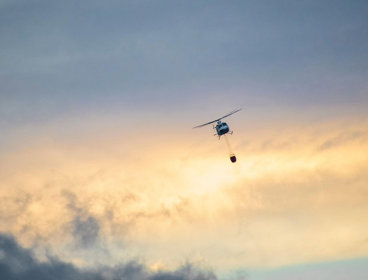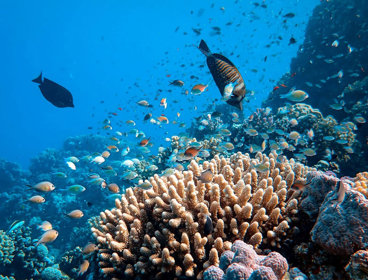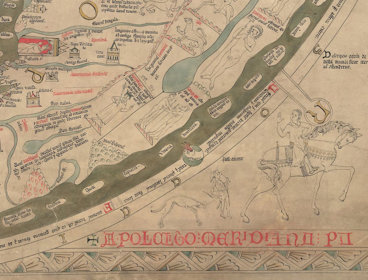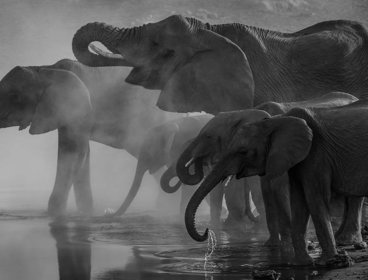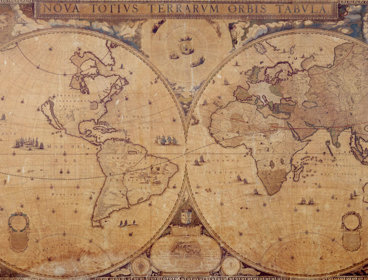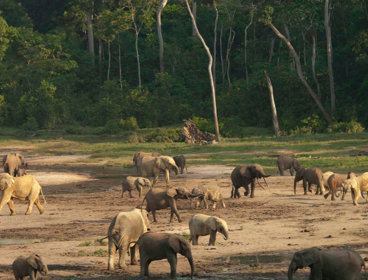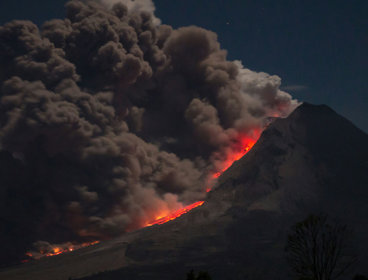
Talks on demand
Explore our diverse collection of event recordings, talks, and podcasts at your convenience to discover inspiration from a range of engaging speakers.
Enjoy the flexibility of watching these recordings in your own time.
Find a talk
Seneca and Franklin were right - Sir Kenneth Olisa
The lecture will explore the work of the National Preparedness Commission (NPC) and its different perspectives. As an independent and apolitical body, the NPC mission is to champion comprehensive, system-wide policies and actions that enable the UK to better avoid, mitigate, respond to, and recover from major crises.
Pristine seas: the last wild places in the ocean
Ocean life is at risk because of overfishing and global warming, but there are still a few remote places that have been saved from human destruction. Enric Sala will bring stories from National Geographic Pristine Seas expeditions and share lessons learned about how to bring the ocean back to life.
Mulu: a remarkable rainforest mountain in Sarawak
Dr Paul Chai was the senior forest botanist on the survey of the Gunung Mulu National Park by the Society and the Sarawak Forestry Department (1977-1978). Now, his son Alvin will join us and highlight past and future research opportunities for those visiting this legendary UNESCO World Heritage Site.
The Mappa Mundi project: changing the world by changing how we view it
Inspired by a map of the world made in 1300 by German nuns, Sandi Toksvig is looking to reassess how we chart what we know.
Informing action: Esmond B. Martin lecture
As one of this year’s Esmond B. Martin RGS Prize recipients, Dr Jake Wall will talk about his work mapping and visualising the GPS data from collared African elephants across the continent.
The Earth transformed: the meeting of geography, history and science
The Earth’s environment affects its civilizations in myriad ways, with prominent historical examples showing the connections between climate and social phenomena. Historian Peter Frankopan will discuss the intersections of geography, history, and science in conversation with the Society’s Cartographic Collections Manager, Katie Parker.
Is ecology contributing to environmental destruction?
Guillaume Bonn will discuss, with Matthew Stadlen, his 20-year journey documenting the last days of East Africa’s natural landscapes and why we need to steer away from idealised portrayals and overused stereotypes.
Our changing climate: why does 1°C matter?
Those who downplay the risks of climate change sometimes suggest that global warming is ‘just’ an increase of 1°C so the consequences cannot be large. This talk by Professor Ed Hawkins will highlight why 1°C matters.
Women at altitude
In 1975, Junko Tabei climbed Everest, the first woman to reach its summit. 50 years on, join the Mount Everest Foundation to celebrate her ascent and discover the rarely told stories of extraordinary pioneering women in the Himalayas and beyond.
Exploring the relationship between environment and people
Changes in the environment are a global phenomenon. However, some people and communities experience the complexities of climate change more than others. This lecture will bring stories from the Global South of small resource-dependent communities facing interconnected social, economic, and environmental challenges.
Warmth from below: where ice and ocean meet
As Arctic sea ice melts away, the ocean below is absorbing six times more solar radiation. This lecture will highlight the changing ocean processes melting ice and implications for our weather and climate.
Unravelling the past from hidden volcanic ash
Unearthing ancient volcanic ash from the depths of ice sheets and lakes has provided critical evidence for our reconstruction of past environments and climates. This lecture explores the power of this approach for addressing many of the major environmental challenges that we face today.
